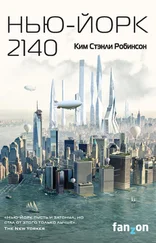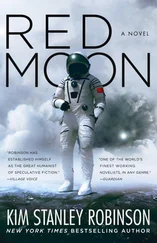“Yeah, yeah. And self-interest exists, no one can say it doesn’t—the governments that tried got in deep trouble, because that’s a lie of a different kind. But to say self-interest is all that exists, or that it should be given free rein! My Lord. Believe that and nothing matters but money.”
“But you changed that,” Kevin would say, watching his footwork.
“Yes, we did. We gave self-interest some room to work in, but we limited it. Channeled it toward the common good. That’s the job of the law, as we saw it then.” He laughed. “Legislation is a revolutionary power, boy, though it’s seldom seen as such. We used it for all it was worth, and most liked the results, except for some of the rich, who fought like wolverines to hold on to what they had. In fact that’s a fight that’s still going on. I don’t think it will ever end.”
* * *
Exactly! Kevin thought, watching his strangely silent grandfather toil up the trail. The fight will go on forever, and yet you’ve stepped out of it, left it to us. Well, maybe that was fair, maybe it was their turn. But he needed the old man’s help!
He sighed. They got to the cabin and Tom ducked inside. One bucket of water went into a holding tank. The other was brought out into the sun, along with the four dead rabbits. Big knife, slab of wood, tub for the blood and guts. Great. Tom began the grisly task of skinning and cleaning the little beasts. Hardly any meat on them; hardly any meat on Tom. Kevin went around the side and fed the chickens. When he returned Tom was still at it. Doris and Nadezhda were seated on the ground under the kitchen window. Kevin didn’t know what to say.
* * *
“This conference in Singapore you met at—what was it about?” Doris finally said, breaking a long silence.
“Conversion strategies,” Nadezhda said.
“What’s that?”
Nadezhda looked up at Tom. “Maybe you can explain it more clearly,” she said. “My English is not so good to be explaining such a thing.”
Tom glanced at her. “Uh huh.” He went into the kitchen with the skinned rabbits; they heard a freezer door open and shut. He came back out and took the tub of entrails over the Emerson septic tank, dumped them in, shut the lid and clamped it down.
Nadezhda shrugged at Doris, said, “We were finding ways to convert the military parts of the economy. The big countries had essentially war economies, and switching to a civilian economy without causing a depression was no easy thing. In fact, no one could afford to change. So strategies had to be conceived. We had a big crowd in Singapore, though some there opposed the idea. Do you remember General Larsen?” she said to Tom. “U.S. Air Force, head of strategic defense?”
“I think so,” Tom said as he walked by her. He went out into his garden and started plucking tomatoes.
Nadezhda followed him. She picked up his basket, followed him around as he shifted. “I am thinking people like him made aerospace industries the hardest to change.”
“Nah.”
“You don’t think so?”
“Nah.”
“But why?”
Long silence.
Then Tom said, “Aerospace could be sicced on the energy problem. But who needs tanks? Who needs artillery shells?”
He lapsed back into silence, rooted under weeds in search of another tomato. He glanced at Nadezhda resentfully, as if she had tricked him into speaking. Which, Kevin thought, she had.
“Yes,” Nadezhda said, “conventional weapons were hard. Remember those Swiss plans, for cars built like troop movers?” She laughed, a low clear chuckle, and even elbowed Tom in the arm. He smiled, nodded. She said, “What about those prefab schoolrooms, made by the helmet and armor plants!”
Tom smiled politely, got up and went into the kitchen.
Nadezhda followed him, talking, taking down a second cutting board and cutting tomatoes with him, going through his shelves to find spices to add to oil and vinegar. Talking all the while. Occasionally in passing she put a hand to his arm, or while cutting she would elbow him gently, as old friends might: “Do you remember? Don’t you remember?”
“I remember,” he said, with that small smile. He glanced at her.
“When the engineers got the idea of it,” she said to Doris and Kevin, “their eyes lit up. It was the best problems they were ever having, you could hear it in their voices! Because everything helped, you see? With all that military work redirected to survival problems, conflicts caused by the problems were eased, which reduced the demand for weapons. So it was a feedback spiral, and once in it, things changed very quickly.” She laughed again, suffused with nervous energy, doing her best, Kevin saw, to arc that energy into Tom; to charm him, cajole him—seduce him….
Tom merely smiled that brief glancing smile, and offered them a lunch of tomato salad. “All there is.” But he was watching her, out of the corner of his eye; it seemed to Kevin that he couldn’t help it.
They ate in silence. Tom wandered off to the pump with his buckets. Nadezhda went with him, talking about people they had known in Singapore.
Doris and Kevin sat in the sun. They could hear voices down at the pump. At one point Nadezhda exclaimed “But we acted!” so sharply they could make it out.
Muttered response, no response.
When they returned she was laughing again, helping with one bucket and telling a story. Tom was as silent as before. He still seemed friendly—but remote, watching them as if from a distance. Glancing frequently at Nadezhda. He took one bucket down to the Emerson tank, began working there.
* * *
Eventually Kevin shrugged, and indicated to the women that he thought it was time to leave. Tom wandered back as they stood. “You sure you won’t help us?” Kevin asked, catching Tom’s gaze and holding it.
Tom smiled. “You get ’em this time,” he said. And to Nadezhda: “Nice to see you again.”
Nadezhda looked him in the eye. “It was my pleasure,” she said. She smiled at him, and something in it was so appealing, so intimate, that Kevin looked away. He noticed Tom did the same. Then Nadezhda led them down the trail.
23 March. There is no such thing as a pocket utopia.
Consider the French aristocracy before the revolution—well fed, well clothed, well housed, well educated—brilliant lives. One could say they lived in a little utopia of their own. But we don’t say that, because we know their lives rested on a base of human misery, peasants toiling in ignorance and suffering. And we think of the French aristocracy as parasites, brutal, stupid, tyrannical.
But now the world is a single economy. Global village, made in Thailand! And we stand on little islands of luxury, while the rest—great oceans of abject misery, bitter war, endless hunger. We say, But they are none of our affair! We have our island.
The Swiss have theirs. Mountain island with its banks and its bomb shelters—as fast as some Swiss take refugees in, other Swiss kick others out. Schizoid response, like all the rest of us.
Spent the morning at the Fremdenkontrolle, one office of the police station on Gemeinderstrasse. Clean, hushed. Marble floors and desktops. Polite official. But, he explains slowly in high German so I will understand, the new laws. As you don’t have a job. Tourist visa only. And as you have been here over a year already, this no longer possible is. No Ausweis. Yes, wife can stay till end of employment. Daughter too, yes.
But who’ll take care of her? I wanted to shout. Of course that’s part of the plan. Kick out one and the rest of the family will follow, even if they have work. Efficient.
Читать дальше
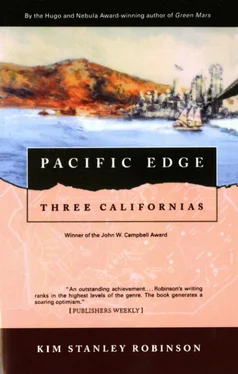
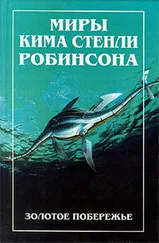
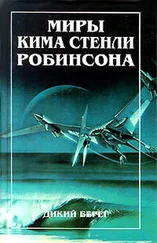


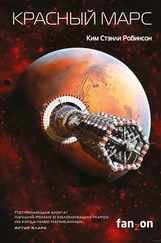

![Ким Робинсон - Годы риса и соли [litres]](/books/394367/kim-robinson-gody-risa-i-soli-litres-thumb.webp)
